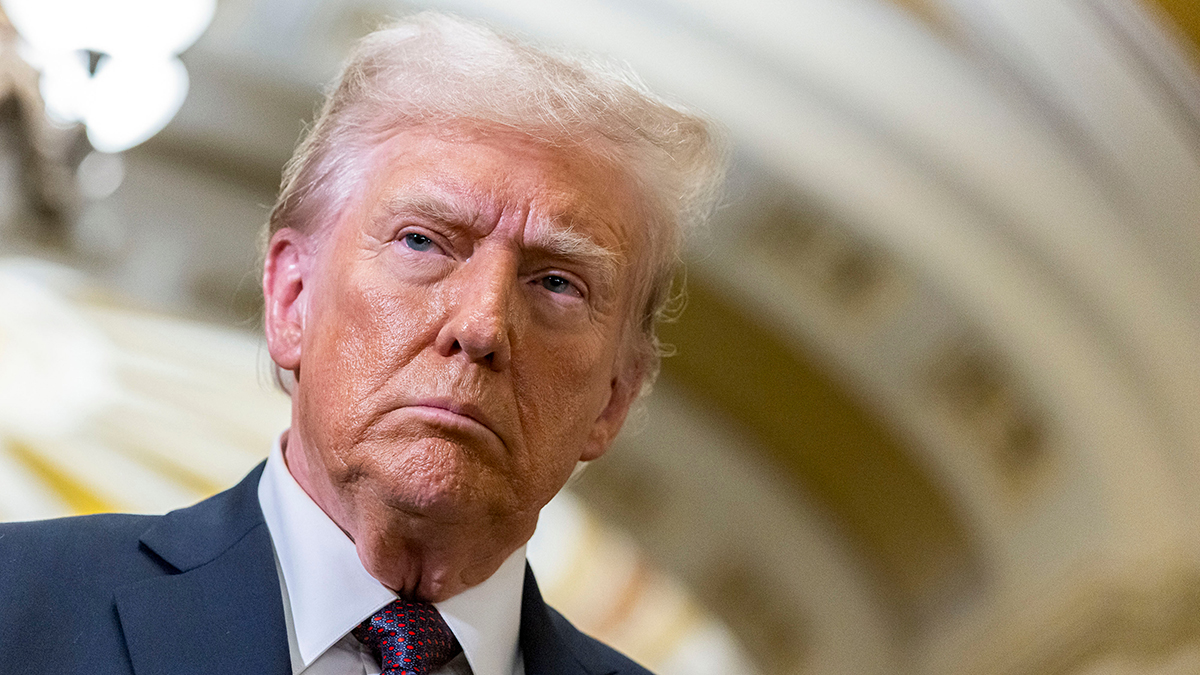Florida
Former Florida Techie’s Elite Chinese Hacking School Exposed

A Wuhan-based school that claims to offer aspiring hackers professional information security training has grown into an apparent headhunting hub for Chinese government hacking groups, according to a new investigation.
The Wuhan Kerui Cracking Academy is likely training hackers and funneling them into Chinese intelligence hacking shops at the Ministry of State Security (MSS), according to a Thursday report from “Intrusion Truth,” a mysterious persona bent on exposing Chinese government hacking groups.
The Daily Beast can reveal that the man at the helm of the Kerui Cracking Academy training operation—identified in the report as Qian Linsong—once lived in St. Petersburg, Florida while working for American tech company Thinking Systems Corporation. The company offers software developments services for medical imaging, including for customers in China, according to its website.
A biography of Qian posted on Wuhan University’s website indicates that he moved to the U.S. in the early 2000s, and photos published in the report show him attending events with the Thinking Systems Corporation logo visible in the backdrop.
Just a few years later, Qian moved back to China and founded the alleged spy school, according to Intrusion Truth.
“Established in 2007, the Kerui Cracking Academy prides itself on providing its students the best information security training in the industry, including the ‘most professional reverse security course’ as part of its curriculum,” the report says. “So confident is the school of its teaching abilities that it tells prospective students not to worry about finding a job—in fact ‘almost 100% of students get a job within one month.’ Impressive!”
The Wuhan Kerui Cracking Academy did not immediately respond to a request for comment from The Daily Beast about the school and its founder. The head of Thinking Systems Corporation did not respond to The Daily Beast by time of publication.
The so-called “Professor X” appears to be leading somewhat of a double life, according to Intrusion Truth. On the one hand, he works as a part-time teacher at the National Cyber Security College of Wuhan University, a tutor at the Huazhong University of Science and Technology, and the Vice Chairman of Quanzhou Artificial Intelligence Society, according to the investigation.
On the other, he also moonlights at an intelligence-linked company, according to Intrusion Truth, running a company called Kerui Reverse Technology Company. The company says on its website that it has been providing “technical services for many projects of the Ministry of Public Security and the Ministry of State Security,” according to Intrusion Truth.
“It is safe to assume that Qian is no stranger to working with Chinese intelligence services,” the Intrusion Truth blog states.“We couldn’t help but wonder whether Qian’s cooperation with the MSS runs a little deeper. Is Qian supplying the MSS with freshly trained hackers? Or even up-skilling hackers the MSS have found?”
“Wuhan Kerui is very famous in the circle and is very professional in reverse engineering.”
The MSS often relies on contractors for its hacking operations, which opens them up to some exposure since those contractors like to boast that they work for the Chinese government, John Hultquist, who has been tracking similar Chinese hacking operations for years, told The Daily Beast.
“One of the interesting things that we see again and again is MSS relying on contractors who oftentimes openly advertise they’re working with them,” said Hultquist, the Vice President of Intelligence Analysis at cybersecurity firm Mandiant.
Kerui Cracking Academy appears to keep track of where its graduates go to work, according to its website, revealing that many of their places of work must be kept secret. Some of their graduates are marked as “confidential,” according to pages reviewed by The Daily Beast.
Reviews posted on the suspected Kerui Cracking Academy website show students are grateful to have attended, and found the work “not as difficult as you think.”
One student said they began studying at Kerui with very little understanding of computers and programming, but now thinks they have lived up to their family’s expectations.
Another student, whose graduation destination is listed as “confidential,” said a “big guy” in Beijing told them that Kerui is well-known, which prompted them to attend.
“A big guy came back from Beijing. His annual salary is one million. I chatted with him about participating in the training,” the student said, according to a student review seen by The Daily Beast. “He said that Wuhan Kerui is very famous in the circle and is very professional in reverse engineering.”
Mystery group
The cheeky investigation is just the latest from the mysterious Intrusion Truth, which has been publishing blogs working to undermine and expose the most prominent Chinese government hacking entities since 2017.
In some cases, it has revealed names, photos, and other details about individuals allegedly hacking at the behest of the Chinese government. One 2020 investigation exposed front companies for Chinese government hacking operations.
Some blog reports have aligned with or appeared to inform U.S. government investigations into the most prolific hacking from China.
Two individuals exposed in one investigation in 2017, including Wu Yingzhuo—who went by the alias “Christ Wu”—and Dong Hao, for instance, were later charged by U.S. authorities for hacks against U.S. businesses in Pennsylvania and in the financial, engineering, and technology industries.
This latest investigation appears to expose hackers working for a Chinese cyber-espionage group known as APT31, which goes after government entities, international financial organizations, and aerospace and defense organizations, according to cybersecurity firm Mandiant. The hackers typically focus on collecting information that can provide Chinese state companies with political, economic, or military advantages.
While Intrusion Truth doesn’t explicitly say it is exposing APT31, the blog tags the post as an APT31 investigation. The U.K. government accused the MSS of supporting APT31 in 2021.
In the report, Intrusion Truth noted that Qian had spent time in the United States working for an American company in his 20s, without mentioning the state he was living in or his employer at the time.
The group did, however, post a photo of Qian allegedly taken when he visited Disney World. It sussed out his interest in starting the apparent MSS hacker feeder school, claiming that at a young age he began downloading hacking software to experiment with at home—just as China-U.S. hacking began surging.

Florida
Concerns rise in Florida as Trump, DeSantis plan immigration policy shifts

ORLANDO, Fla. – Advocates and those directly impacted by potential changes to immigration laws in Florida are expressing their concerns.
Two days after calling a special session on immigration, hurricane recovery and more, Gov. Ron DeSantis outlined a series of policies he believes will be easier to implement once President-elect Trump takes office.
“In this legislative session, you’re going to see some major changes in the federal government’s posture when it comes to the border and immigration,” DeSantis said during a press conference at the Polk County Sheriff’s Office on Wednesday
One of the things DeSantis said he would push for is to require local law enforcement to participate in federal immigration enforcement, which would include Trump’s plans to start a mass deportation effort.
[ What are the expected immigration policies under a second Trump Administration?]
Seventeen-year-old Polet Oaxaca, the daughter of a Central Florida immigrant farmworker, expressed her concerns to News 6.
“I feel like it’s worrisome. You never know what will happen when you go out of the house, to maybe buy groceries,” she said. “She’s scared that something’s going to happen, that she’s going to have to go back to Mexico. All that hard work going down the drain. It’s all wasted.”
Locally, the Farmworker Association of Florida is advocating for immigrants. Ernesto Ruiz, the agroecology coordinator, noted that while anti-immigrant rhetoric has intensified, it might just be empty promises.
“There is concern because even though we have been through a Trump presidency, DeSantis administration, the language is escalated, right?” he said.
“When they’re talking about record deportations, it gets people worried. It gets us worried. I remind myself, and I try to remind my friends and colleagues and community members that we have to separate Trump the candidate from Trump, the statesman. Because he says a lot of things and he doesn’t follow through with a lot of things.”
Families like Oaxaca’s remain fearful, especially with DeSantis’ proposals, which include repealing a law that allows undocumented children to pay in-state tuition rates.
“Honestly, I think they’re trying to make things difficult for us. We haven’t done anything wrong here,” Oaxaca said. “The only reason why we’ve ever, why Hispanics have come over here or immigrants, in general, have come here is for a better life for them.
Governor DeSantis also suggested implementing citizen verification for foreign remittances, a move Ruiz believes could have negative repercussions.
“By limiting the amount of money that we can go and send to communities back in the global South that need it, you’re going to increase poverty,” Ruiz argued. “How does that solve anything other than punish the people here, punish the people back there, and then create a huge incentive for more immigration to come?”
The special session the governor called to discuss immigration will be on Jan. 27.
Get today’s headlines in minutes with Your Florida Daily:
Copyright 2025 by WKMG ClickOrlando – All rights reserved.
Florida
Florida State Rep. Hillary Cassel speaks out

Watch CBS News
Be the first to know
Get browser notifications for breaking news, live events, and exclusive reporting.
Florida
The Florida Panhandle has a 50% chance of snow on Tuesday. Latest forecast

A blast of Siberian air and back-to-back winter storms will send subfreezing temperatures in the 20s across North Florida and bring a high chance of snow to the Florida Panhandle and a portion of the Big Bend and Jacksonville areas.
“The cold outbreak will occur right smack in the middle of what is historically the coldest part of the winter,” AccuWeather Senior Meteorologist Bob Larson said.
The first of two winter storms expected to impact the southeastern United States will bring showers and a possible thunderstorm to the Florida Panhandle starting late Friday night and continuing through Saturday, according to AccuWeather.
The second winter storm will be colder and snowier – even in Florida, which is the only contiguous U.S. state not to see snow this winter.
North Florida has a 50% chance of snow
The National Weather Service and the European Centre for Medium-Range Weather Forecast model are now in agreement as the chance of snow creeps to 50% in the Florida Panhandle on Tuesday.
The chance of snow diminishes eastward across the Sunshine State. Tallahassee has a slight chance of rain and snow showers before 10 a.m. on Tuesday and a possible mix of rain and snow later that night. The ECMRWF model puts those chances around 30-40%.
Jacksonville does not currently have a chance of snow, according to the NWS, but the ECMRWF model shows a sliver of a chance, between 10-20%.
How cold will it get in Florida?
Much of Florida will avoid the worst parts of the chill, according to AccuWeather. North Florida will see the coldest temperatures, but freezing temperatures will likely be felt even in Central Florida, too.
Here’s a look at temperatures in some of Florida’s regional hubs, according to AccuWeather’s Forecast:
- Pensacola
- Sunday: High 54, low 25
- Monday: High 43, low 28
- Tuesday: High 39, low 21
- Wednesday: High 41, low 29
- Tallahassee
- Sunday: High 60, low 27
- Monday: High 47, low 32
- Tuesday: High 47, low 24
- Wednesday: High 43, low 24
- Jacksonville
- Sunday: High 67, low 35
- Monday: High 47, low 39
- Tuesday: High 48, low 31
- Wednesday: High 45 low 35
- Orlando
- Sunday: High 71, low 45
- Monday: High 53, low 46
- Tuesday: High 58, low 39
- Wednesday: High 57, low 45
- Tampa
- Sunday: High 73, low 47
- Monday: High 58, low 45
- Tuesday: High 57, low 39
- Wednesday: High 54, low 42
- Miami
- Sunday: High 81, low 65
- Monday: High 70, low 66
- Tuesday: High 74, low 61
- Wednesday: High 66, low 63
Why is snow so rare in Florida?
The most basic answer is that subfreezing temperatures in Florida tend to be brought on by cold fronts, which generally produce dry air.
Florida’s best chance of seeing snow happens when a storm pulls in moisture from the Gulf of Mexico while cold air is being pushed from the north. Of course, if cold air is moving south, it’s likely pushing that moisture away from Florida, hence the conundrum.
The more complicated reason snow is rare in Florida is almost everything about Florida, from its geographical features to its proximity to the equator, discourages the conditions needed for snow.
Florida’s warm temperatures are the first problem. The second issue is that Florida, the Sunshine State, gets a lot of sunlight because of how close it is to the equator. That sunlight and warmer temperatures tend to keep sustained cold air at bay, preventing it from amassing in quantities for snow to form.
Florida is also a pretty flat state, and its highest point, Britton Hill, is only about 345 feet above sea level. That doesn’t give cold air a lot of places to hang out.
Lastly, there’s the Gulf of Mexico. The Gulf is a relatively warm body of water, and it acts as a large temperature moderator for Florida.
What’s needed for snow to form?
The conditions required to produce snow are typically generalized. Most people know that it needs to be at or below 32 degrees, which is considered the threshold for water to freeze. That’s not the only condition where snow can form, however.
Snow can still form even in temperatures as high as 33.8 degrees. There are occasions when a higher layer of atmosphere is slightly above freezing where the snowflake might start to melt as it passes through that layer but can still make it to the ground as snow.
Another special case is referred to as the “wet bulb” effect. The wet bulb temperature is the temperature air reaches when water evaporates into it. Snow can still manage to form if the height where the wet bulb temperature reaches freezing is less than 1,500 above the ground.
In both special circumstances, the snow will be wetter and stickier than traditional fluffy and dry snow.
-
/cdn.vox-cdn.com/uploads/chorus_asset/file/25822586/STK169_ZUCKERBERG_MAGA_STKS491_CVIRGINIA_A.jpg)
/cdn.vox-cdn.com/uploads/chorus_asset/file/25822586/STK169_ZUCKERBERG_MAGA_STKS491_CVIRGINIA_A.jpg) Technology1 week ago
Technology1 week agoMeta is highlighting a splintering global approach to online speech
-

 Science6 days ago
Science6 days agoMetro will offer free rides in L.A. through Sunday due to fires
-
/cdn.vox-cdn.com/uploads/chorus_asset/file/23935558/acastro_STK103__01.jpg)
/cdn.vox-cdn.com/uploads/chorus_asset/file/23935558/acastro_STK103__01.jpg) Technology6 days ago
Technology6 days agoAmazon Prime will shut down its clothing try-on program
-

 News1 week ago
News1 week agoMapping the Damage From the Palisades Fire
-

 News1 week ago
News1 week agoMourners Defy Subfreezing Temperatures to Honor Jimmy Carter at the Capitol
-
/cdn.vox-cdn.com/uploads/chorus_asset/file/25826211/lorealcellbioprint.jpg)
/cdn.vox-cdn.com/uploads/chorus_asset/file/25826211/lorealcellbioprint.jpg) Technology6 days ago
Technology6 days agoL’Oréal’s new skincare gadget told me I should try retinol
-
/cdn.vox-cdn.com/uploads/chorus_asset/file/25832751/2192581677.jpg)
/cdn.vox-cdn.com/uploads/chorus_asset/file/25832751/2192581677.jpg) Technology2 days ago
Technology2 days agoSuper Bowl LIX will stream for free on Tubi
-

 Business4 days ago
Business4 days agoWhy TikTok Users Are Downloading ‘Red Note,’ the Chinese App

















